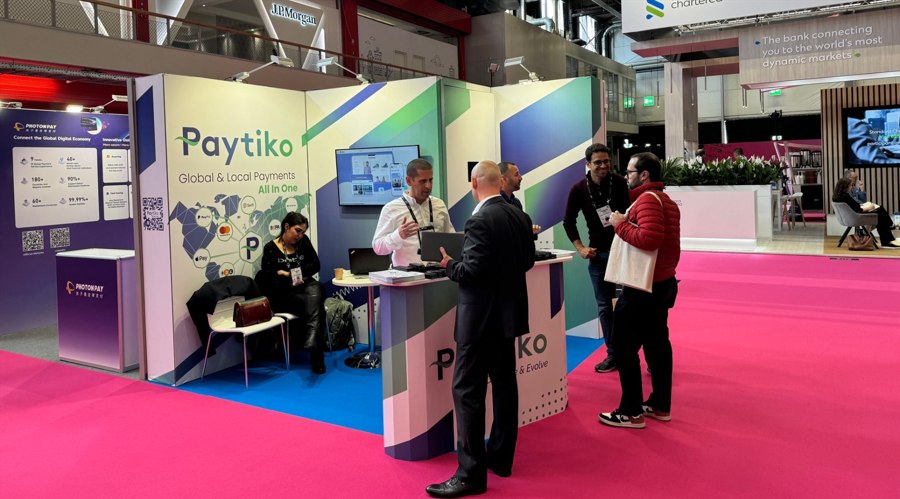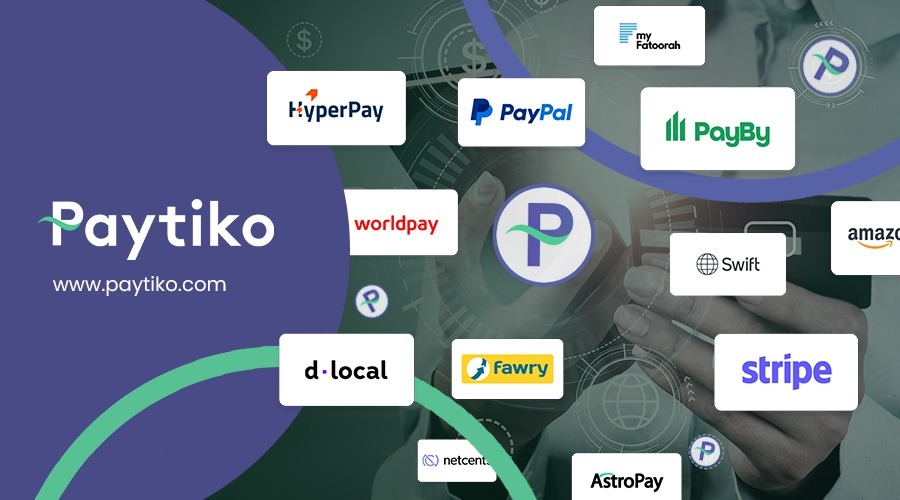Paytiko is a unique payment orchestration platform that puts businesses in the driver's seat of their payment management. With the ability to seamlessly integrate with over 450 payment providers, merchants can consolidate multiple payment methods into a single system, catering to the diverse preferences of their customers. This versatility allows businesses to accept credit cards, e-checks, digital wallets, and other payment methods, thereby enhancing the checkout convenience for their customers. This article will explore Paytiko’s subscription plans, distinctive services, and other features that set it apart and make it a highly sought-after service for various industries and verticals in the global online payments space.
Core Products
Paytiko's core products are not just a patchwork of solutions but are designed to offer a comprehensive solution for all payment needs. These products include PCI-DSS Level 1 gateway, pay-in acceptance, pay-out processing, refunds, reconciliation, reports, pay-by-link, and a virtual terminal.
Compliant Gateway
Payment gateways are technology platforms that act as an intermediary in electronic financial transactions. It enables in-person and online businesses to accept, process, and manage various payment methods—such as credit cards, debit cards, and digital wallets—in a secure and efficient manner. Through its gateway, Paytiko combines all payment methods and aspects of payment processing in a convenient user-friendly system.
Additionally, Paytiko adheres to the highest levels of security and compliance by being a PCI-DSS Level 1 certified. This means that Paytiko can process over 6 million transactions in the year and adheres to technical and operational standards required to secure and protect credit card data provided by cardholders and transmitted through card processing transactions.
As such, Paytiko provides compliance reports on a regular basis as part of their card processing agreements. Additional requirements that the company follows include, but are not limited to: Implementing firewalls to protect data, Applying measures for appropriate password protection (such as two-factor authentication), Protecting and encrypting cardholder data and transmission, Utilizing antivirus and anti-malware software, Updating software and maintaining security systems on a regular basis, Restricting access to cardholder data, Creating unique login IDs for those with access to cardholder data, Restricting physical access to data storage, Creating and monitoring access logs, Testing security systems on a regular basis, and Creating a policy that is documented and can be followed.
Overall, being PCI compliant helps the firm reduce data breaches, protects the data of cardholders, avoid fines, and improves their brand reputation.
Turnkey Dashboard
A turnkey solution is a system that is designed to be seamlessly integrated into an existing business process and is constructed from start to finish for the customer. It is immediately operational upon its implementation and is intended to execute specific processes, including manufacturing (in part or in full), invoicing, website design, training, or content management. In a turnkey solution, a client is required to "turn" a "key" in order to commence business operations in the newly constructed structure. As such, turnkey solutions are a cost-effective and straightforward alternative for a company or business that is not seeking numerous bells and flourishes.
Paytiko accomplishes this by providing a dashboard through 3 distinct sections aimed at managing and organizing daily monetary operations through a comprehensive yet simple interface to help increase transaction success ratios.

The Accounts section is particularly useful for merchants with multiple businesses, locations, or entities. This section catalogs all integrated individual merchant URLs connected to their system. Doing so allows businesses to keep different business functions separate, yet still manage them all through one convenient system. Merchants can easily switch between various entities, as each one is given their own distinct merchant ID.
The Transactions section offers views of intricate transaction details no matter the direction as well as filtration for easy navigation. Finally, the Payments section focuses on customizing services by setting processor cascades, rules, filtrations, limitations, categorizations, and restrictions based on consumer type, region, products offered, and many other parameters.
Pay Ins & Pay Outs
Paytiko's several dashboard views enable businesses to easily differentiate between inbound and outbound transactions and other financial transactions. A concise transactional data set, including the processor used, date, time, payment method, payment holder, country of origin, currency, settlement amounts, and amounts in alternative currencies, is also included, as well as a smart color-coded classification of payment statuses.
Paytiko's Pay In tab also enables users to effortlessly monitor disputes, chargebacks, denied, errored, and voided transactions in relation to their deposits. Finally, Paytiko simplifies online transactions for merchants, irrespective of the quantity of processors they utilize.
Since each organization is distinctive, Paytiko comprehends the necessity of customization. As such, merchants can effortlessly customize their dashboards by incorporating data header filtration, distinctive column layouts, and accessibility options that align with their business requirements and aesthetic preferences.
Overall, Paytiko simplifies the process of monitoring the bottom line and obtaining a more comprehensive understanding of payments by plainly distinguishing between inbound and outbound transactions.
Refunds
The refund section of Paytiko's dashboard is a user-friendly feature that distinguishes between numerous outgoing monetary activities. Clients can examine and issue refunds based on consumer, currency, payment processor, and other parameters.
Additionally, every refund transaction has a unique dashboard identification number. Once issued, they are assigned a colored processing status. Like other sections, refunds can be filtered by numerous column headers provided, and allows for personalized custom layouts based on personal preferences. This means that issuing refunds through Paytiko is efficient and customizable to each business’s needs. Finally, Paytiko also offers automated refund processes, saving time and effort.
All this is ultimately offered in a distinct view separate from withdrawal transactions.
Reconciliations
Paytiko's reconciliation tool is a vital feature that enables merchants to create presets for external data they want to reconcile within the Paytiko environment by importing external reports from payment sources. This feature is handy for firms that employ many currencies, conversions, international exchanges, and payment methods.
Paytiko allows merchants to aggregate and calculate final due amounts from all connected providers. The reconciliation tool automatically matches transactions from different providers, making identification of discrepancies easy. Filters for payment types, time, date, and other data make financial management simple and accurate. This process is done with the utmost accuracy and reliability, ensuring businesses have a comprehensive view and understanding of their financial situation.
Reports
Paytiko's comprehensive reporting tools and features serve as a template for one's payment infrastructure. The reporting tools allow businesses to completely deconstruct a payment flow based on critical variables such as currency, country, payment type, payment processor, CRM account (end-user account on the merchant's website), and card type. These breakdowns can be combined and examined regarding approval ratio, total net sums, payouts (withdrawals), total denied, and other parameters.
Paytiko also offers several customized filter options, allowing one to quickly inspect and synchronize data and key indications to a given condition, area, period, and more. This means that with Paytiko's reporting tools, businesses gain valuable insights into their payment flow, can identify trends, and make informed business decisions. These reports can also be exported in various formats for further analysis or sharing.
The company's reporting scales and syncs efficiently throughout the platform to document payment flows accurately. Merchants may monitor and account for all transactional data at macro and micro levels by utilizing real-time analytics, an easy-to-use interface, instructive charts and graphics, and several indicators.
Pay-ins, payouts, refunds, chargebacks, and other transactions are reported using various criteria, including time, currency, number of new accounts, etc.
Pay-By-Link
Paytiko allows businesses that are interested in increasing their online sales to develop payment links in a short amount of time. Using this feature, businesses are able to generate payment links or invoices that they can send to their customers or suppliers. These invoices and links are supported by the merchant's selected payment methods and providers. Furthermore, the link can be pre-populated with billing and shipping information in order to facilitate the execution of payments in a more seamless manner.
Due to the fact that Paytiko is a PCI-compliant organization, each and every link that the company offers is one that is encrypted. Therefore, this additional payment option is a valuable solution since it gives businesses the assurance that the information they collect from their customers is safe.
Virtual Terminal
Virtual terminals allow businesses to take payments via Paytiko's dashboard, eliminating the need for an external website or payment mechanism. Virtual terminals let businesses take payments from clients regardless of their location; all that is required is an internet connection. This accessibility enables businesses to reach a more extensive customer base and sell their products or services without the constraints of physical terminals or in-person transactions.
Virtual terminals also prioritize client information security, using state-of-the-art encryption and secure data transmission protocols to maintain payment data confidentiality. Paytiko fully complies with industry security standards, including PCI DSS, ensuring that customer's data is always protected. This allows for businesses to develop client trust while lowering the risk of data breaches or fraudulent activity.
Finally, virtual terminals provide scalability and accommodate enterprises of any size. They enable organizations to handle a growing number of transactions as they expand. Virtual terminals can adapt to changing business requirements and help expand into new markets or sales channels.
So, with Paytiko's virtual terminal, businesses can grow by handling larger influx of customers' payments.
Pricing
With Paytiko, businesses can opt for one of two economic subscription plans, each offering unique features and benefits. The company's services, including fixed pricing, multi-user accessibility, seamless integrations with preferred PSPs, and round-the-clock monitoring and security, provide businesses with necessary flexibility. For example, the Starter Package enables enterprises to link Paytiko's dashboard to their business system via API, integrating existing payment methods and adding new processors and banks from Paytiko.
On the other hand, the Continuous Package is tailored for unique enterprises, offering comprehensive support features and resources, graphical and developmental alterations, reporting, and analytics. With Paytiko, businesses retain complete control over their payment management.
Key Takeaways
Merchants can use Paytiko’s payment management system to handle several currencies and access a variety of PSPs via a simple plug-and-play interface. The software is designed to automatically convert currencies and handle different payment types, ensuring a seamless payment experience.
Businesses can also set deposit restrictions and target specific geographical regions based on payment type and provider. This means that regardless of the currency or PSP, Paytiko's system is designed to handle everything, making payment management process seamless and efficient.
Overall, Paytiko is constantly growing and expanding to meet the needs of its clientele. With constant newly added features, Paytiko ensures an upward growth mechanism for itself and its clientele.











